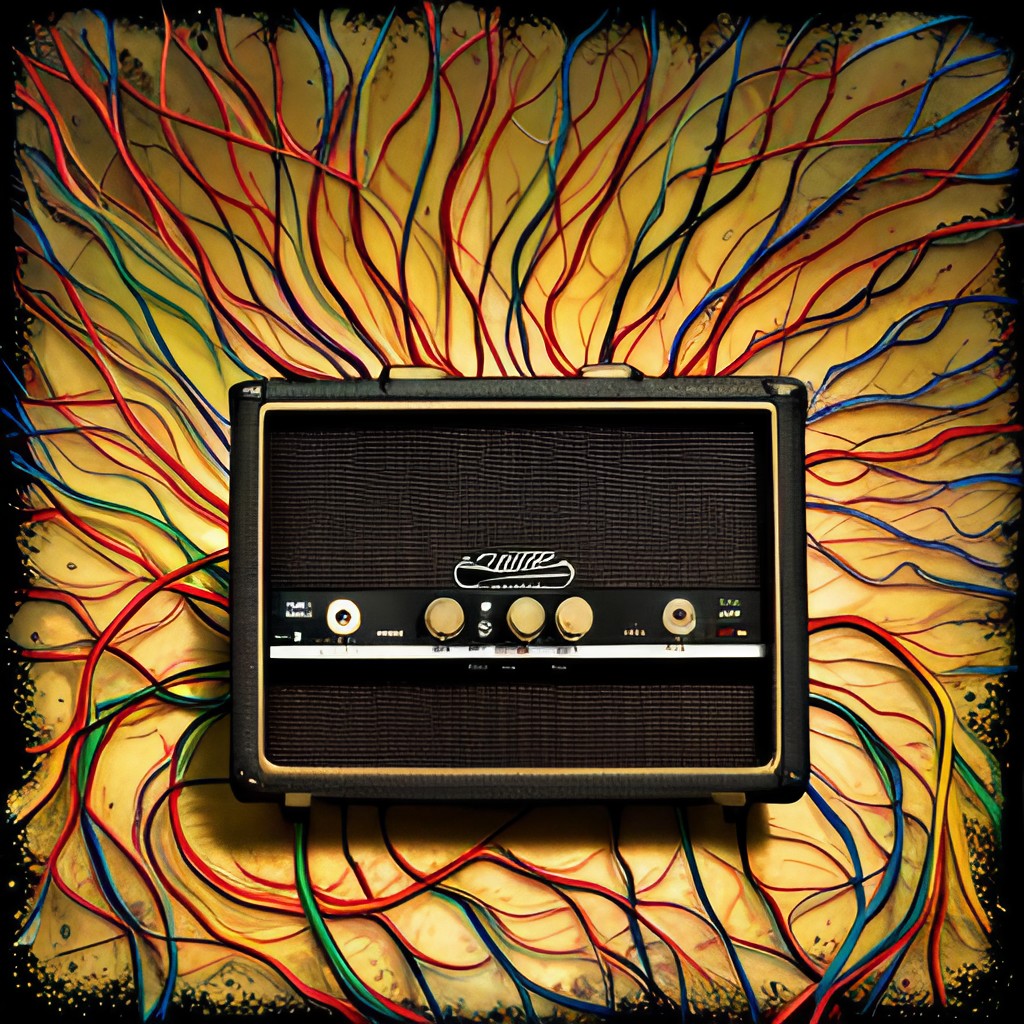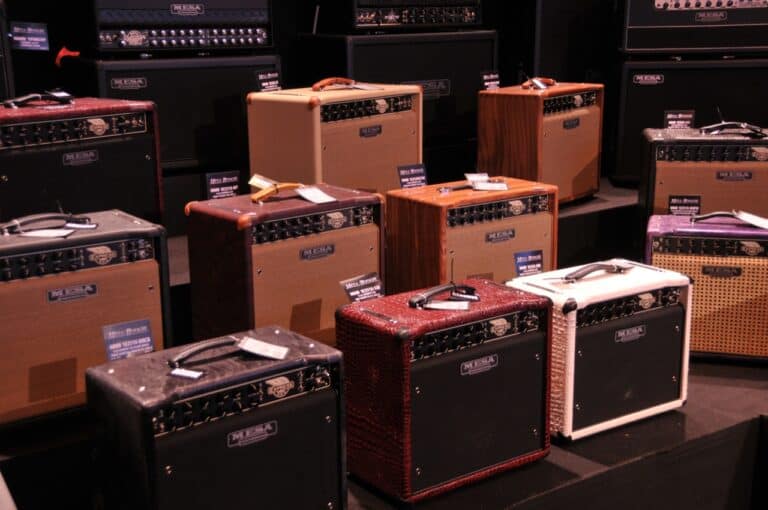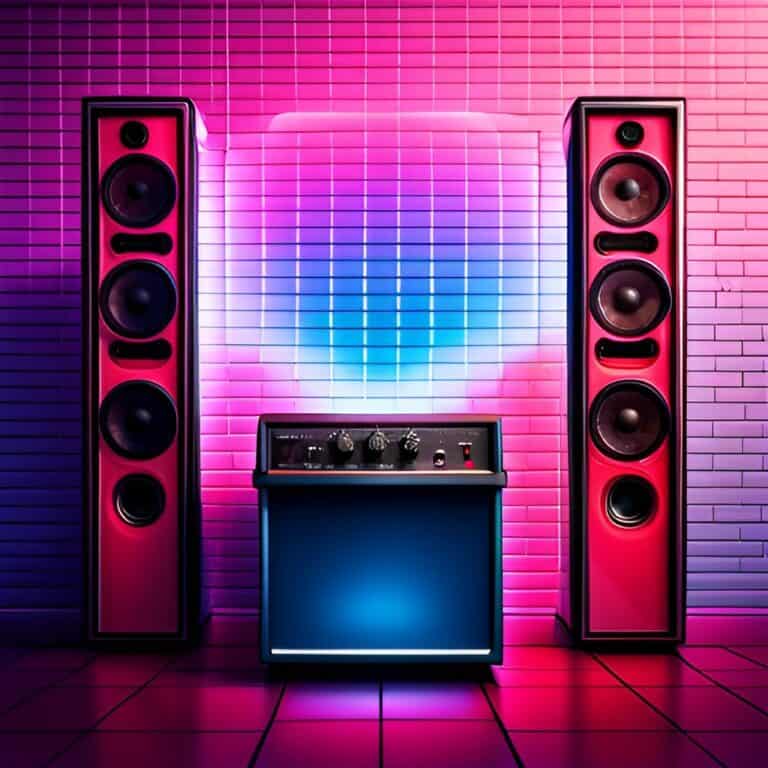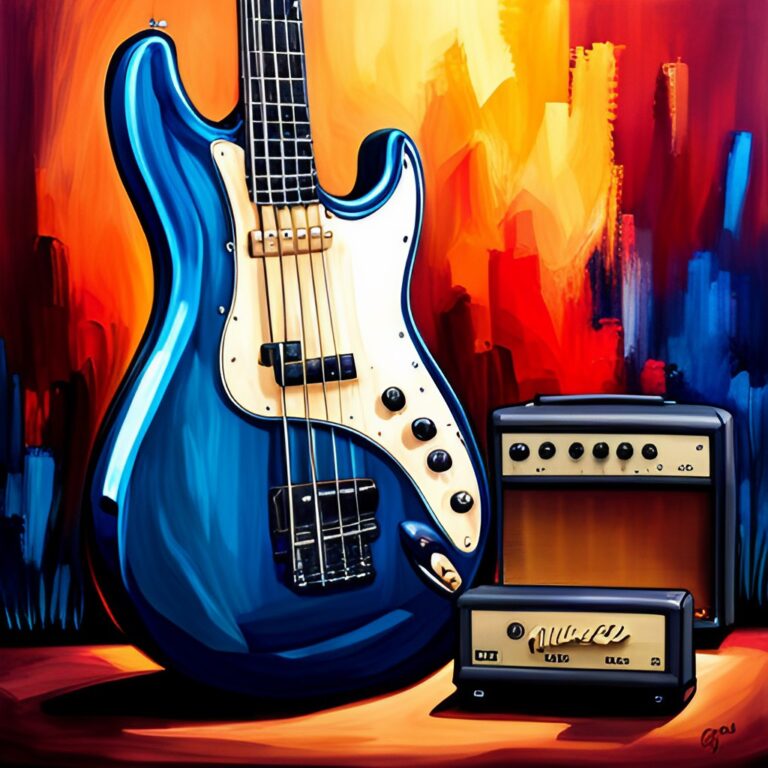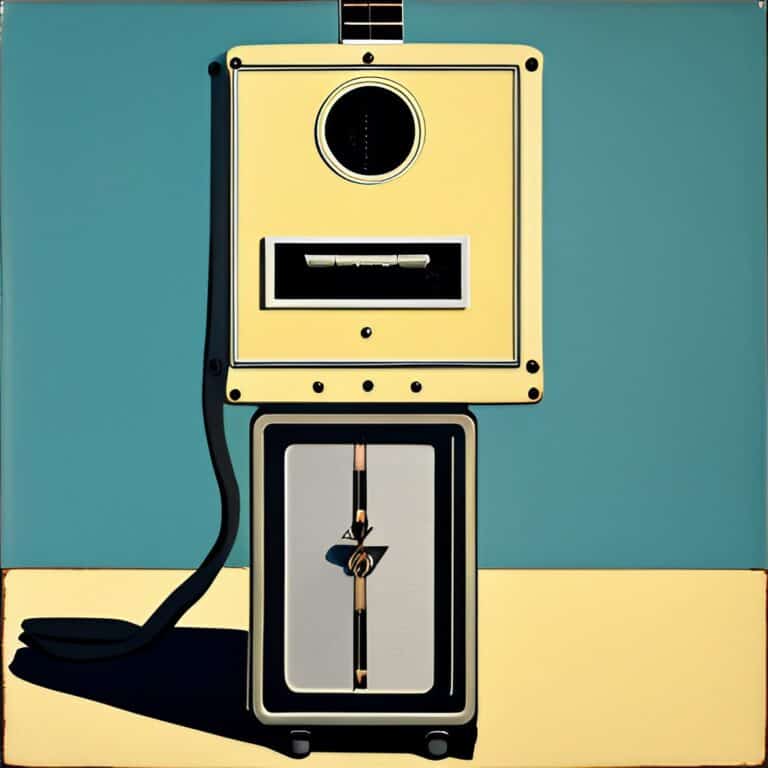Before we do a deep dive into guitar amp cords, their purpose, function, different kinds, etc. We will tell you the purpose of guitar amp cords immediately: To connect your guitar to your guitar amplifier, different pedals, or your headphones. If that’s all you need to know you can stop reading now. We do not go into specific cords, if that is what you are looking for check out Killer Guitar Rigs article here!
This article has 7 sections:
- How does an amp cord amplify sound
- The role of an amp cord
- Understanding sound quality
- Types of cords
- Factors to consider
- Maintenance and storage
- Conclusion
1. How Does A Guitar Amp Cord Amplify Sound?
The guitar amplifier cord is an essential part of every electric guitarist’s setup. It connects the instrument to the amplifier, carrying power and signal. This allows your music to be heard clearly and at a volume that would be impossible without amplification. By taking proper care of this connection, you can ensure the highest quality sound. It is also important to have the right amplifier, click here if you want to find out what the best amp brands are, and here if you are a beginner looking for a starting amp.
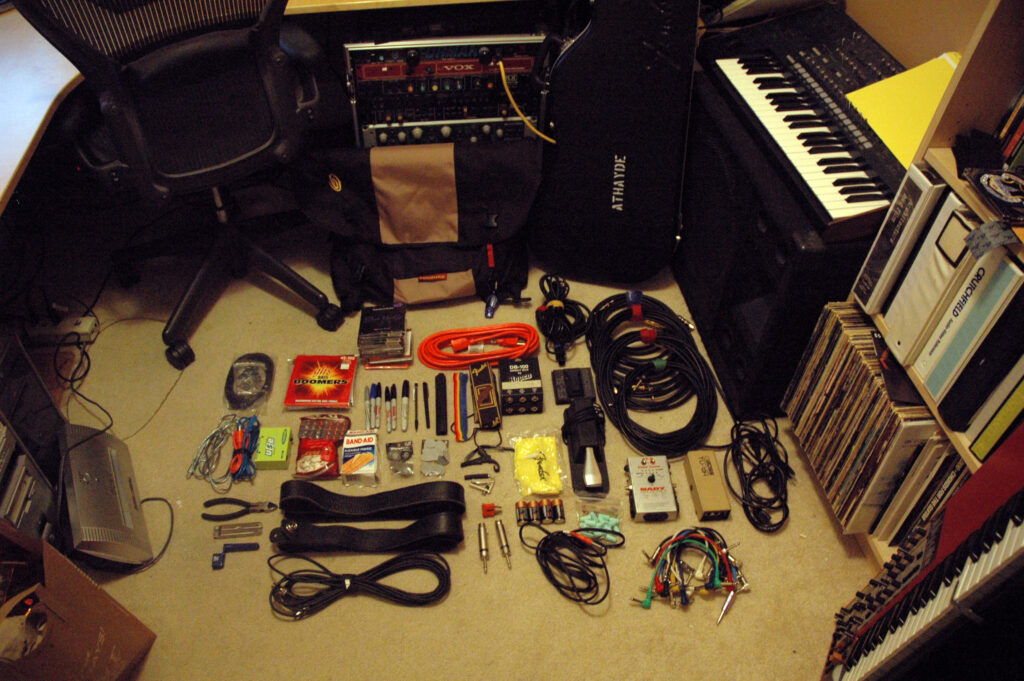
How Does A Guitar Amp Cord Impact Overall Performance?
Choosing the right guitar amp cord has a big impact on your performance and sound. Opting for a high-quality cable ensures a clean signal without any interference. It also allows your instrument to be powered appropriately, resulting in higher volumes and better response from the amplifier. By making the right cable choice, you can easily achieve your desired sound with the best quality.
Goal of This Article
This article explores the significance of owning a high-quality guitar amp cord and provides insights on the various types available. We will also discuss key factors to consider when choosing, such as length, construction, and shielding. By gaining a better understanding of these elements, you can make an informed decision and achieve the desired sound quality that meets your expectations. Let’s uncover the mysteries of guitar amp cords together!
2. The Role of the Guitar Amp Cord
Primary Function of The Guitar Amp Cord
The guitar amp cord has a fundamental purpose: connecting your guitar to the amplifier. It acts as a seamless conduit, ensuring the transmission of your music without compromising its quality. Additionally, it plays a crucial role in delivering the required power to amplify your sound with clarity. Without a reliable guitar amp cord, your music would fall short of its true potential.
Transfer of Electrical Signals
Guitar amp cords have a crucial role in transmitting electrical signals from the guitar to the amplifier. These signals get amplified, resulting in significantly louder volume and clearer sound compared to the instrument alone. It’s important to know that different cable types vary in quality, which directly affects your music’s overall sound. Opting for higher-quality cords ensures a cleaner signal, allowing your music to be accurate and dynamic. On the other hand, choosing lower-quality cords may cause signal distortion or coloration, resulting in inferior sound quality.
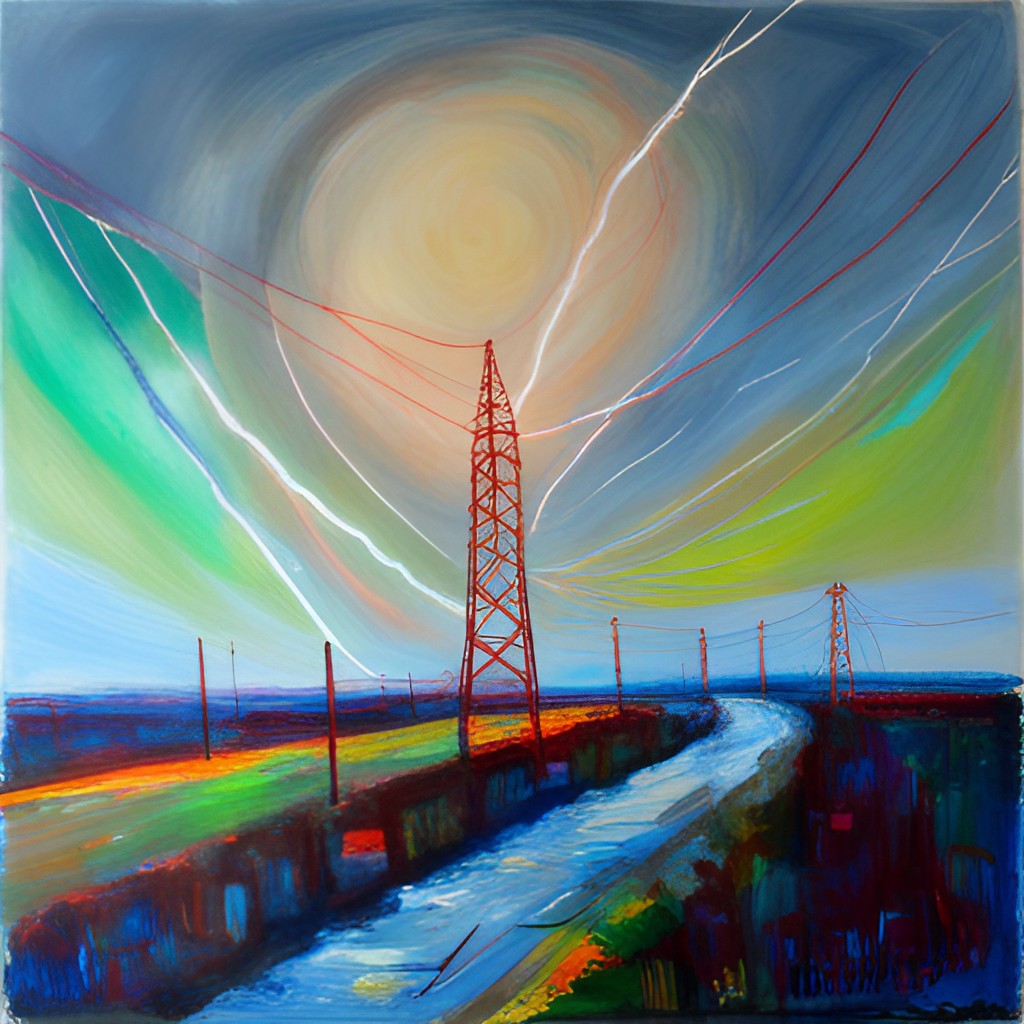
Types of Connections
When connecting your guitar to an amplifier, you have a range of specialized cords to choose from, aside from the standard 1/4-inch instrument cables. Some amplifiers may require speaker cables or direct box inputs, while more complex setups may need multi-channel cables for additional outputs. Each connection type has its own pros and cons, so it’s important to select the appropriate one for your specific setup. Additionally, modern amplifiers often have balanced XLR outputs, which provide a clearer, more precise sound with minimal noise and interference.
3. Understanding Sound Quality
Importance of EQ Settings
The EQ settings on your amplifier are crucial for unlocking the full potential of your instrument’s sound. By adjusting the frequency ranges skillfully, you can have precise control over the levels of treble, midrange, and bass. This allows you to create unique tonal characteristics that set you apart. For example, if you want a brighter tone, emphasize the treble and midrange frequencies. If a warmer sound is what you desire, boost the bass. The possibilities are endless with EQ settings. It’s important to experiment until you find the perfect balance between clarity and warmth for your instrument.
What is The Connection Between Guitar Amp Cord And Sound Quality?
The choice of guitar amp cord has a big impact on sound quality. Opt for high-quality cords with excellent shielding and insulation to reduce interference and external noise. This ensures faithful tonal reproduction when playing through an amplifier or PA system, resulting in crystal-clear sound. Additionally, make sure the cable can handle the voltage and current requirements of your specific setup. Securely anchor the cable at both ends to prevent noise from movement and further enhance sound quality. Choosing the right guitar amp cord is crucial to getting the best out of your instruments and amplifiers. Take the time to find one that meets your needs precisely.
How do Cable Length, Material, and Construction Impact Clarity and Tone?
The sound quality of a cable is influenced by its length, material, and construction. Longer cables introduce more noise due to increased resistance, so shorter ones are preferable for maintaining clarity. Materials in guitar amp cords have different characteristics. Copper is a good conductor but brittle, while oxygen-free copper offers superior conductivity and flexibility. The construction of the cord also matters; braided shield cords resist interference better than standard cloth jackets.
When selecting the right cable for your setup, considering all these factors is crucial. This careful thought will ensure a clear and consistent tone, allowing you to make the most of your equipment.
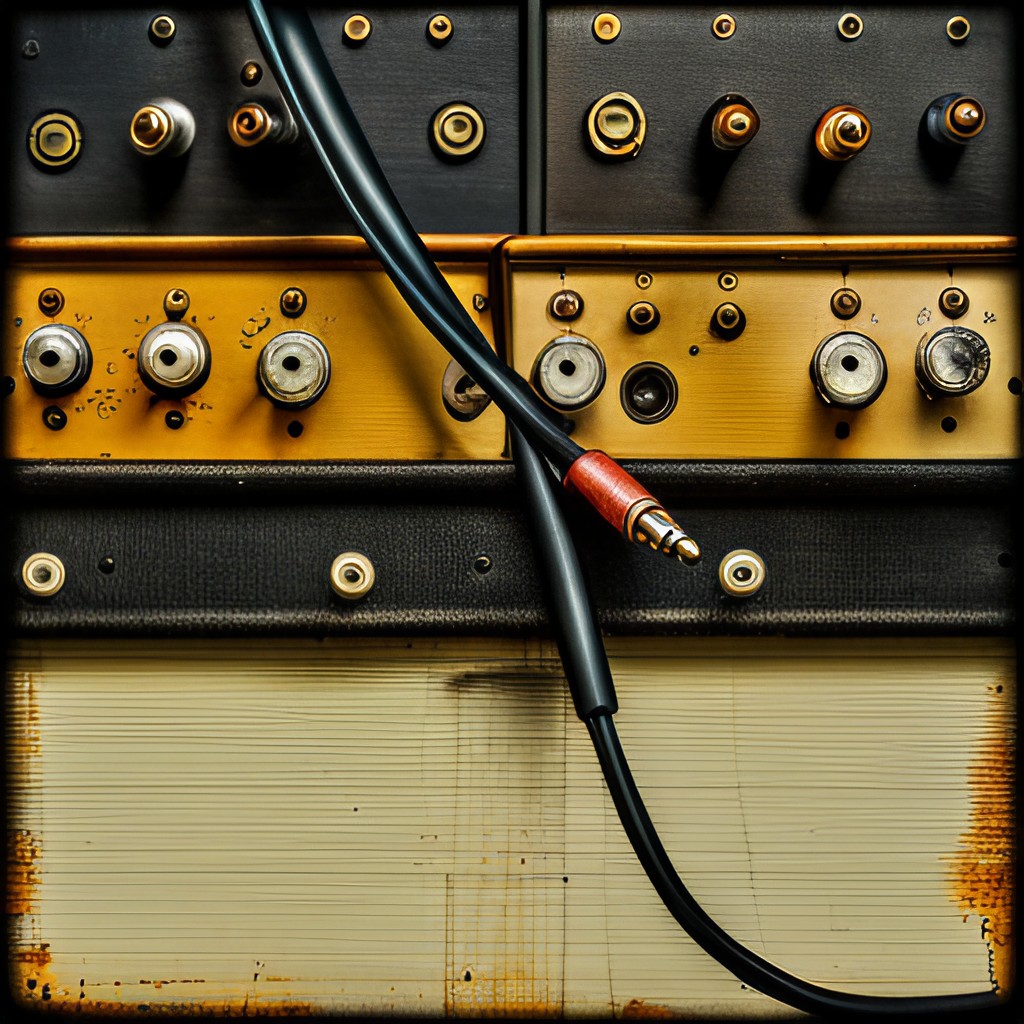
How Can Signal Loss Be Minimized?
Guitar amplifiers often face signal loss due to excessive cable resistance. This causes a reduction in signal strength and duller output sound. However, there is a solution: using cables with low capacitance and impedance. Low capacitance cables minimize signal absorption during travel, reducing loss. Similarly, low impedance cables effectively transport signals with minimal distortion. These cable characteristics preserve the integrity and quality of your guitar’s amplified sound.
Ensuring optimal signal integrity is vital in audio connections. By utilizing appropriate connectors, you can minimize signal loss. For instance, gold-plated contacts provide better contact between the cable and the amp compared to regular brass or copper connectors. Additionally, larger connectors like 1/4″ jacks are more effective in transmitting signals than smaller ones. Ultimately, using high-quality cables and connectors that are compatible with your amp can greatly reduce signal loss.
4. Types of Guitar Amp Cords
What is The Most Commonly Used Type of Guitar Amp Cord?
The 1/4-inch instrument cable is a widely used and popular guitar amp cord. It features two large connectors—one for the guitar and one for the amplifier—that allow for easy and hassle-free connection and disconnection of your equipment. Available in various lengths, from a few feet to over 25ft, there’s a cable to suit your needs. These cables are also cost-effective and easily accessible, making them a great choice for most guitarists.
What Are Some Variations of This Cord?
When comes to 1/4-inch instrument cables, there are various options to consider. You can choose the length that suits your setup, ranging from a few feet to over 25ft. Different cables offer varying levels of shielding, such as braided copper or foil, to minimize interference and signal loss. The choice of connectors depends on the type of amp or guitar you’re using. For example, certain Fender amps require a specialized 1/4-inch plug that is not found on standard instrument cables. Selecting the right cable is crucial to maximize the performance of both your amp and guitar.
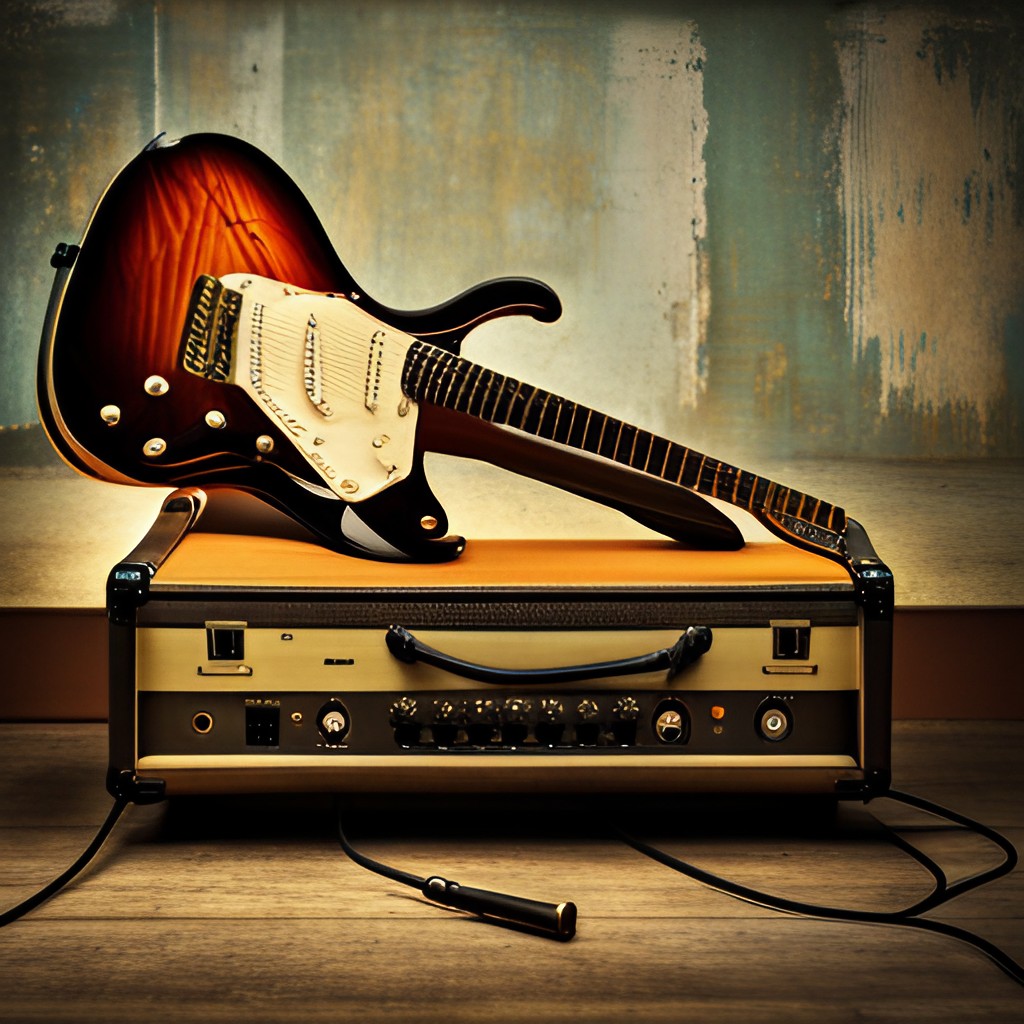
High-End Guitar Amp Cords
If you’re looking for excellent sound quality, high-end guitar amp cords are worth considering. These premium cables provide superior performance in terms of sound fidelity and reliability. With advanced shielding and connectors, they minimize interference and signal loss. While they may be pricier than standard 1/4-inch instrument cables, many guitarists find the enhanced audio experience well worth the investment. Premium cables also come in different lengths and connector options, ensuring a perfect fit for your setup.
How Do High-End Guitar Amp Cords Differ From Standard Cords?
Premium guitar amp cords offer the same fundamental features as regular 1/4-inch instrument cables, but with enhanced performance and reliability. These cables have better shielding to prevent interference and signal loss. They also have connectors that are compatible with a wide range of amplifiers and guitars. They come in different lengths to suit your setup. While they may cost more than standard instrument cables, they provide superior sound quality and performance.
Specialty Cables
In addition to regular 1/4-inch instrument cables and premium cables, there are specialized guitar amp cords available for specific applications. For example, if you plan to use a vintage instrument or record in the studio, it’s worth considering specialty cables designed for these purposes. These cables often have special connectors and shielding to minimize noise and interference, making them ideal for studio use. They also come in different lengths to suit various setups. While specialty cables are generally pricier than standard or premium instrument cables, they offer exceptional performance for your guitar amp.
What Are The Unique Characteristics of Specialty Guitar Amp Cords?
Specialty guitar amp cords have unique characteristics and benefits that make them perfect for specific purposes. One notable advantage is their exceptional shielding, which minimizes noise and interference during recordings or when using vintage instruments. They are also designed to seamlessly work with a wide array of guitars and amplifiers, making them ideal for studio applications. These cables are available in various lengths, allowing you to adapt them to your setup. Some models even have special connectors for easy connection to different equipment. While they may cost more than standard instrument cables, they offer remarkable sound quality and performance enhancement.
Why Specialty Cords May Be The Best Choice For You
Specialty guitar amp cords provide unmatched shielding and compatibility, making them the ideal choice for specific applications. Whether you’re recording, playing vintage instruments, experimenting with guitar amp modeling, or exploring exotic effects processing, these cords excel. With exceptional craftsmanship, they offer durability for studio and stage use, while maintaining consistent sound quality. Available in various lengths and connectors, these cords perfectly complement any setup. For reliable sound with minimal interference, specialty guitar amp cords are the epitome of excellence.
5. Factors to Consider When Choosing a Guitar Amp Cord
Length and Flexibility
When selecting a guitar amp cord, take into account the space and distance requirements. If you perform at various venues or studios, it’s advisable to opt for a longer cable for multiple setups. Also, prioritize flexibility for cords that will be regularly moved to prevent tangling and potential damage in the long run.
How Can The Length of The Cord Affect Mobility?
The cable length greatly affects mobility and performance, providing more freedom of movement. This advantage is especially noticeable in various venues or studios. With a longer cord, you can easily navigate and switch between songs without being confined or constantly adjusting your setup. Additionally, a longer cable reduces interference caused by multiple closely intertwined cables. This is particularly useful for live performers or those working with energetic backing tracks.
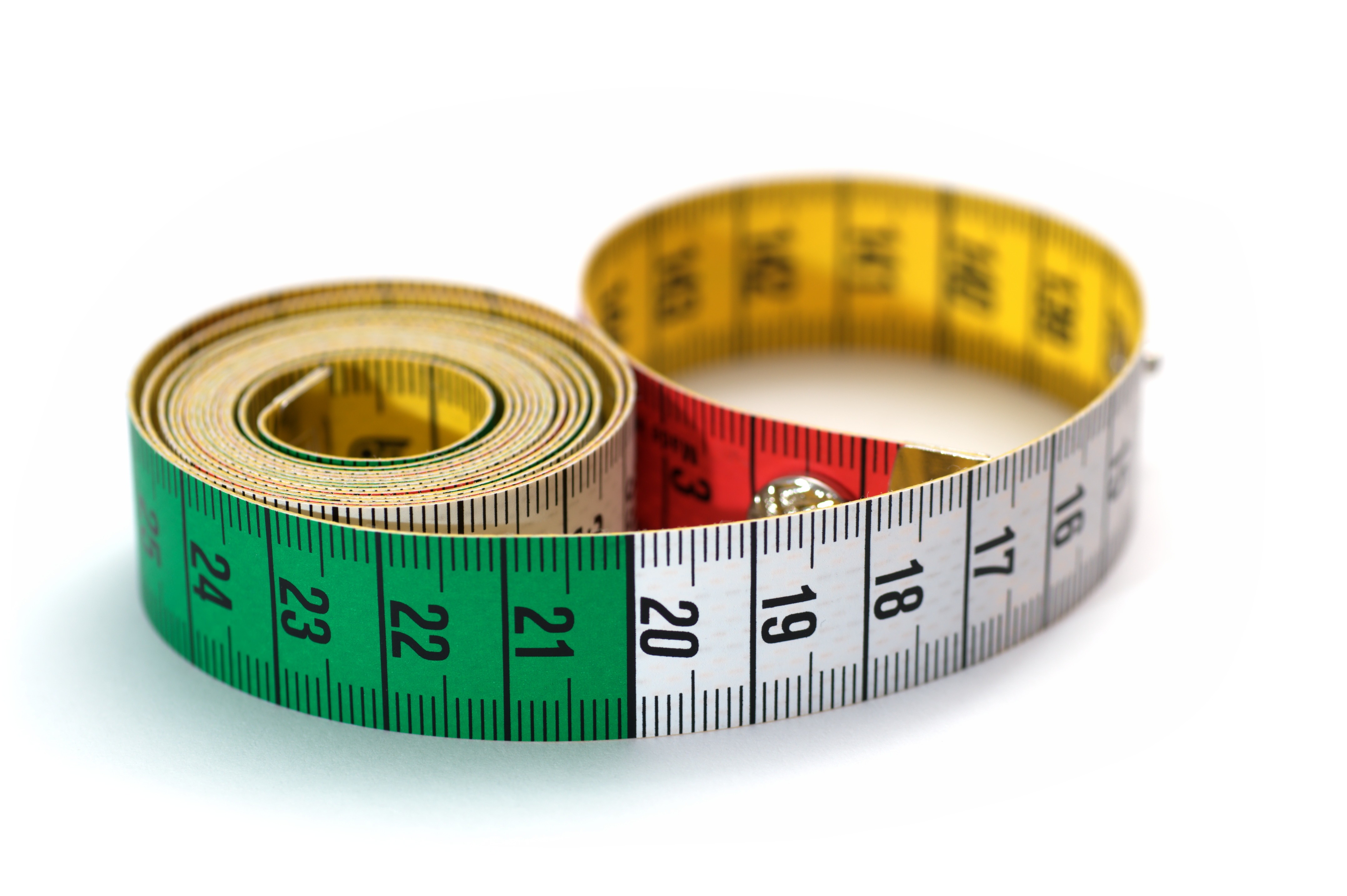
Importance of A Flexible Cord
The flexibility of a guitar amp cord is important for easy use and storage. Flexible cables prevent tangles and damage, even with frequent movement. This is particularly useful if you need to store or transport your cable between venues or gigs. Additionally, flexible cables are easy to coil up and store in small spaces like backpacks or gig bags. Say goodbye to tangled messes when setting up quickly for a performance! This benefit is especially valuable for musicians who often play in multiple venues or on the road.
Signal Loss and Noise Reduction
For musicians, maintaining sound quality is crucial. One effective way to achieve this is by using cables with minimal signal loss. Long or thin cables can cause signal loss, resulting in compromised audio clarity or distortion. Using a low-signal-loss cable ensures pristine guitar tone without unwanted noise interference.
Effective Noise Reduction
Effective noise reduction is vital for any guitar amp setup. Achieving this can be done through different approaches. One method is using shielded cables. These cables are encased in either metal or plastic and help minimize unwanted interference in the signal. Another technique is using separate cables for the input and output signals. This reduces the amount of noise picked up by the amp. Combined, these methods ensure a clean and vibrant sound, enhancing your musical performance.
Durability and Reliability
When it comes to guitar cables, durability is crucial. Choosing a sturdy cable means it will last longer, saving you money. Look for cables with a thick wire gauge and strong connectors that won’t fray or break easily. This ensures they can withstand wear and tear. Also, consider a cable with a reliable manufacturer’s warranty for added peace of mind, knowing your investment is well-protected.
Build Quality
The lifespan of a guitar cable is heavily influenced by its build quality. Low-quality cables can degrade, resulting in unreliable connections and inconsistent sound. On the other hand, premium cables feature sturdy connectors made from durable materials, ensuring long-lasting performance. Investing in a high-quality cable not only guarantees optimal sound but also saves you money by reducing the need for frequent replacements. When selecting a guitar cable, prioritize durability and performance for the best results.
6. Maintaining and Storing Guitar Amp Cords
Tips For Proper Maintenance
To keep your guitar amp cords in good condition, proper maintenance is vital. After each use, check the cable carefully for any damage, like fraying or tears. If you find any issues, replace the cable promptly. Also, protect your cables from moisture, dust, and dirt by storing them in a case or bag. This prevents damage and reduces wear and tear. Lastly, always coil your cables when not in use to avoid accidental stretching or tangling, which can cause fraying or breakage. By following these maintenance tips, you’ll extend the lifespan of your guitar amp cords for years.
Storage
To store and protect your cables effectively, consider these helpful solutions. Invest in protective cases or bags designed specifically for guitar amp cords. These bags come with dividers to keep cords organized and tangle-free. Alternatively, use a cable stand for easy storage and organization without coiling cords. This prevents tangling and damage from improper storage. If space is limited, opt for a wall-mounted wire rack. It provides a convenient and space-saving solution while keeping your valuable guitar amp cords in excellent condition.
7. Conclusion
This article provides useful tips for maintaining and storing your guitar amp cords. To ensure their longevity, regularly inspect them for signs of damage such as frays or tears. Also, store them in protective cases or bags to keep them free from dust and dirt. Investing in a cable stand or wall-mounted wire rack offers a convenient and space-saving solution for keeping your cords organized and tangle-free. By properly caring for and maintaining your guitar amp cords, you can enjoy optimal performance for years.
Guitar amp cords are important for achieving excellent amplified sound quality. Using the wrong cable can distort or interfere with your guitar’s signal, resulting in lower-quality sound. To enhance the sound produced by your amplifier, it’s crucial to take proper steps to maintain your cord’s condition. Storing them correctly and performing regular maintenance will help your guitar amp cords remain durable for years, ensuring exceptional sound quality.
Selecting the right guitar amp cord is vital for optimal performance. When choosing a cable, prioritize sound quality, durability, and flexibility. Research and invest in a high-quality cord to enhance your amplifier’s capabilities and enjoy an exceptional sound experience.

